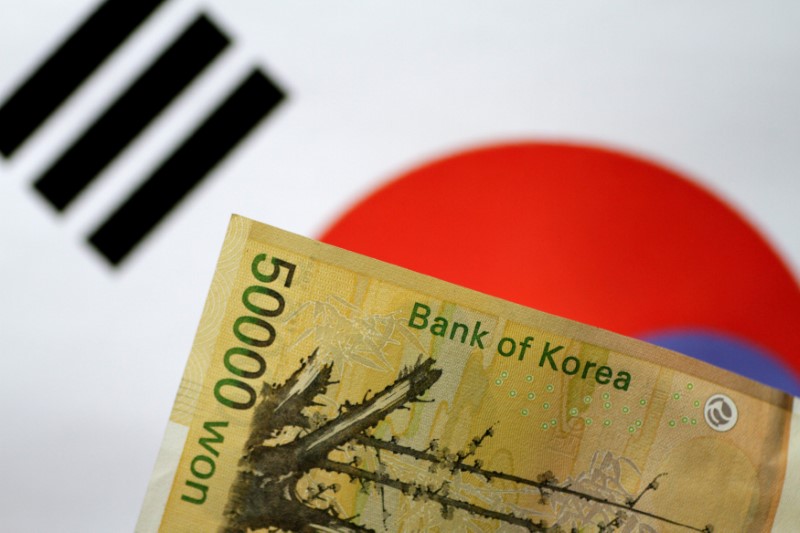Intel stock spikes after report of possible US government stake
Investing.com-- Most Asian currencies strengthened on Thursday, with the Japanese yen and the South Korean won leading gains after a major U.S.-Japan trade deal bolstered optimism about potential similar pacts before the looming tariff deadline.
Both top-gaining currencies traded at their highest levels in two weeks, poised for a fourth straight session of gains.
Still, investor sentiment in Japan remained cautious amid ongoing political uncertainty, following the ruling coalition’s defeat in last week’s upper house elections and speculation over Prime Minister Shigeru Ishiba’s potential resignation.
The US Dollar Index, which measures the greenback against a basket of major currencies, fell 0.1% in Asia hours after four consecutive losses..
Japan trade deal, political uncertainty in focus; yen higher
President Trump announced on Wednesday that Washington and Tokyo have struck a broad trade deal that includes a 15% tariff on all imported Japanese goods, down from a previously proposed 25%. In return, the U.S. secured a massive $550 billion Japanese investment in the U.S. economy.
The yen extended gains for the fourth straight day with the USD/JPY pair trading 0.4% lower as of 04:07 GMT.
“The yen, however, is less certain of what this all means – especially given the prospect of an imminent resignation from PM Ishiba,” ING analysts said in a note.
A day earlier, local media reports stated that Japanese Prime Minister Shigeru Ishiba plans to formally announce his resignation soon.
However, later on Wednesday, Ishiba denied that he had decided to quit despite a bruising upper house election defeat.
“With so much uncertainty and low volatility still favouring carry, we do not see a strong rationale for the yen to trade a lot stronger from here,” ING analysts added.
Asia FX gains as US-Japan deal spurs trade optimism
The South Korean won’s USD/KRW fell 0.6% to two-week lows on Thursday as the U.S.-Japan trade deal stoked hopes that other countries would also reach agreements before Trump’s August 1 deadline.
Both the onshore USD/CNY and offshore USD/CNH Chinese yuan pairs traded 0.1% lower.
The Singapore dollar’s USD/SGD pair edged 0.2% lower, while the Malaysian ringgit’s USD/MYR also ticked down.
The Australian dollar’s AUD/USD pair gained 0.3%.
Elsewhere, the Indian rupee’s USD/INR inched down 0.1%.
